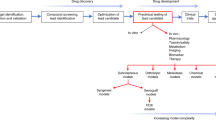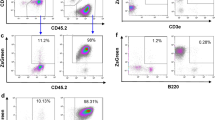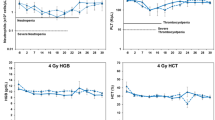Abstract
ATTEMPTS to induce malignant neoplasms in monkeys have not met with the success that has been achieved in other species. The rarity of spontaneous neoplasms in monkeys suggests that these animals are more resistant to the development of malignant disease than man and other species. There have been no specific references, however, to the use of the South American marmoset, Tamarinus nigricollis, in the experimental induction of neoplasms. A recent review by Kent1 indicates that attempts at the production of malignant disease by the application of polycyclic hydrocarbons in monkeys have failed.
This is a preview of subscription content, access via your institution
Access options
Subscribe to this journal
Receive 51 print issues and online access
$199.00 per year
only $3.90 per issue
Buy this article
- Purchase on Springer Link
- Instant access to full article PDF
Prices may be subject to local taxes which are calculated during checkout
Similar content being viewed by others
References
Kent, Sidney P., Ann. N.Y. Acad. Sci., 85, 819 (1960).
Author information
Authors and Affiliations
Rights and permissions
About this article
Cite this article
LEVY, B. Induction of Fibrosarcoma in the Primate Tamarinds nigricollis. Nature 200, 182–183 (1963). https://doi.org/10.1038/200182c0
Issue Date:
DOI: https://doi.org/10.1038/200182c0
Comments
By submitting a comment you agree to abide by our Terms and Community Guidelines. If you find something abusive or that does not comply with our terms or guidelines please flag it as inappropriate.



